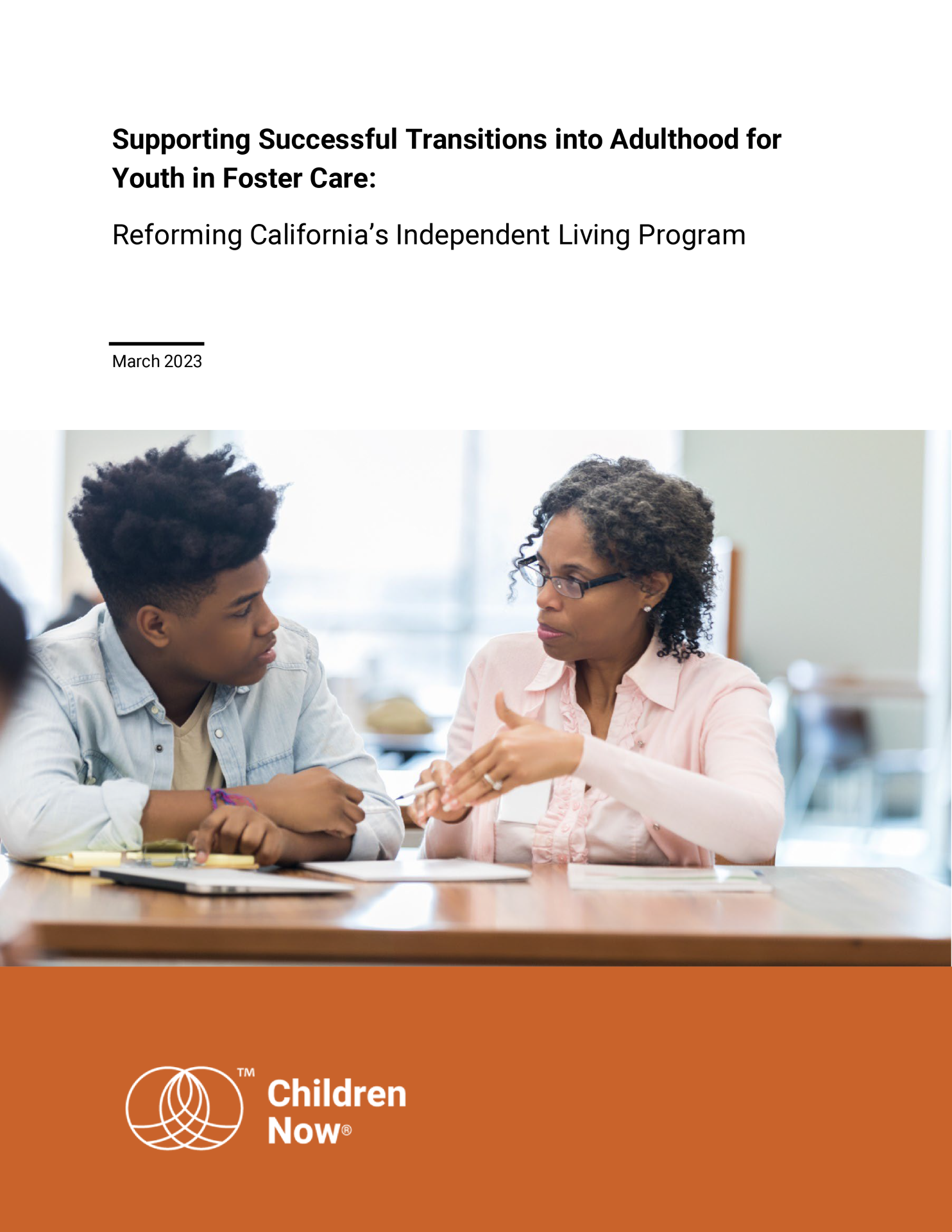
Supporting Successful Transitions into Adulthood for Youth in Foster Care:
Reforming California’s Independent Living Program
Reforming California’s Independent Living Program
Transition services and supports are critical for youth with foster care experience because they face significant obstacles as they transition to adulthood. Youth with foster care experience face the long-term consequences of having experienced the trauma of child abuse or neglect and being removed from their homes. While youth are in foster care, they may have limited opportunities to gain real-world experience, develop stable relationships with supportive adults, and build the autonomy needed to be self-sufficient.2 Compared to their peers in the general population, transition age youth currently or formerly in foster care experience greater school instability, housing instability, difficulty finding and maintaining employment, behavioral and physical health challenges, and difficulty establishing and maintaining relationships with people they can rely on.
